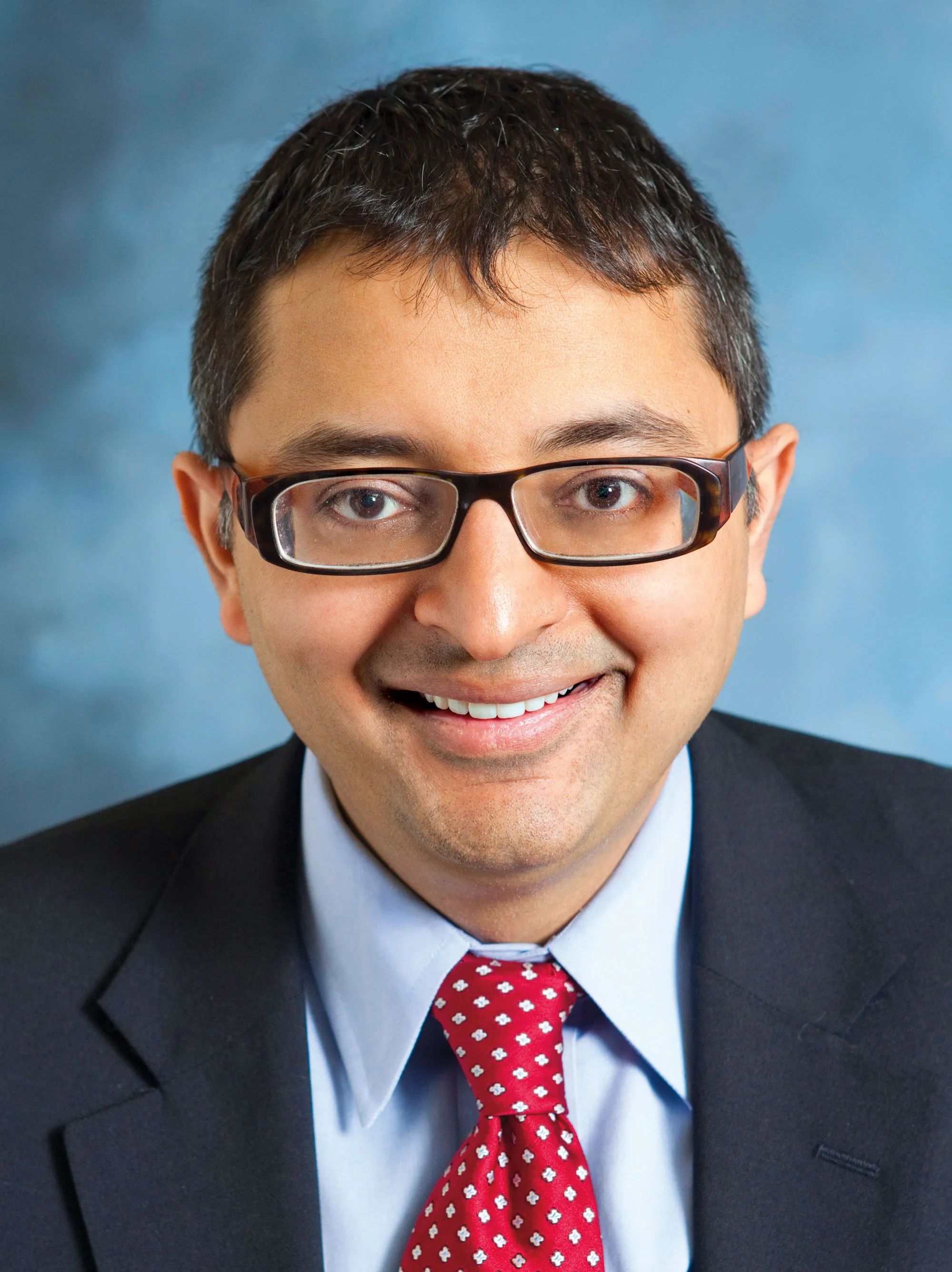Nirav Shah, '07: JD/MD Impacts National, Global Public Health Regulation

Last year, Nirav Shah, ’07 JD, ’08 MD, was appointed to the cabinet of Governor Bruce Rauner as the Director of the Illinois Department of Public Health. Charged with protecting the health and wellness of the people of Illinois, the agency has a budget of more than 500 million dollars, manages more than 200 programs, and has more than 1,000 employees.
“This is my dream job,” Shah says. “To have it this early in my career was kind of stunning at first, and it’s still very demanding, but my training and experience are serving me well.”
Shah entered medical school at the University of Chicago in 2000 with the intention of becoming an academic in the medical field. His career focus shifted when he took a hiatus from his studies beginning in 2001 to serve a fellowship in Cambodia, working as an economist on public health issues. “I was uniquely unqualified for what I was expected to do when I arrived in Cambodia,” he recalls. “I suppose the good news for me was that the country’s health system had fallen into such complete disrepair that anything I could do helped.” Among other things, he tackled disease outbreaks, conducted cost-effectiveness studies, fought against counterfeit drugs, and worked to root out the corruption that had become pervasive in the system. By the end of his time there, he held the title of Chief Economist within the Ministry of Health.
When he returned to Chicago, it was with a strong determination to become a highly effective public health leader. Attending law school made sense in that context. “Ever since I had first met Richard Epstein, during my first year in med school when we had a common interest in medical ethics, he had been telling me that I should study law in addition to getting my medical degree,” Shah recalls. “I realized how right he had been. Most modern public health issues come down to two things: regulation, and compromise or deal making among many competing interests and stakeholders. There’s no place where regulation is as richly understood as it is at the Law School, and there’s no place that prepares you better to reach optimal negotiated outcomes.”
He continued to work with the Cambodian government during law school and as he completed his last year of medical school, traveling to Cambodia on occasion but mostly interacting over Skype. He was able to communicate at long distance because he had become fluent in the Cambodian language, Khmer. At the Law School, he won the Hinton Moot Court Competition and was a John M. Olin Scholar in Law and Economics.
After his graduation from medical school, Shah joined Sidley Austin in its global life sciences practice. He credits the firm for adding a crucial finishing touch to his preparation: “For all the great things I learned at the Law School and the med school, Sidley taught me something just as vital—how a true professional acts in the world. That included so many things—how to communicate with others, how to handle disagreement diplomatically, when to speak out and when to hold back, how to negotiate, how to write a business letter and a memo, how to run an effective meeting. No one sat me down to teach me that; I learned it by example, from observing the consummate professionals at Sidley. I realized from my mentor at Sidley, Paul Kalb, that ultimately, if you don’t possess those skills, no one cares how smart you are or how good your ideas might be. You have to make effective human contact to get things done. I have been very happy to see that since I graduated, the Law School is incorporating excellent preparation of this type into the curriculum, through the Kapnick Leadership Development Initiative and other offerings.”
“The Illinois Department of Public Health has a weighty responsibility, to serve all citizens of Illinois with a focus on helping those who are most disadvantaged,” Shah observes. “Every day as I pursue that responsibility I benefit from the brilliant legal scholarship and wise counsel that were imparted to me at the Law School.”


